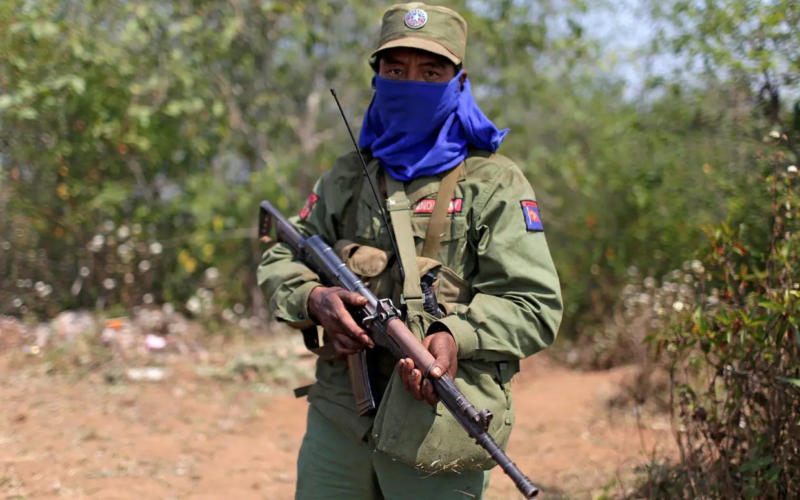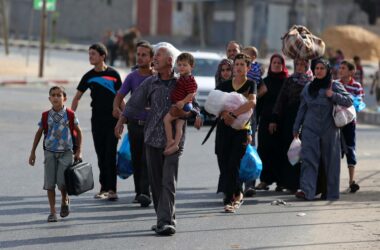In a significant blow to Myanmar’s ruling junta, a rebel army announced over the weekend that it had captured a regional military base, securing control over a strategic city and its airport near the border with China. The victory, which marks one of the most substantial gains yet for the fragmented coalition of rebel forces opposing the military regime, underscores the growing strength and momentum of the resistance.
On Monday, Myanmar’s military leadership acknowledged the severity of the situation, admitting that they had lost contact with the northeastern command base in Lashio, Shan State. This base, one of 14 across the country, was home to thousands of government soldiers and served as a crucial military hub for the junta.
The rebel group, the Myanmar National Democratic Alliance Army (MNDAA), which is composed of fighters from the Kokang ethnic Chinese minority, claimed responsibility for the takeover after weeks of intense fighting. On Saturday, the group released images of its fighters posing at the base’s gates and asserted that they had captured three senior officers, all of whom were generals stationed at the base.
The fall of the Lashio base is a major setback for the junta, which has been struggling to maintain control as various rebel militias and pro-democracy groups have made significant advances across the country. In response to these growing challenges, the military has recently implemented a mandatory draft, reflecting its increasing desperation.
Zaw Min Tun, a military spokesman, confirmed on Monday that senior officers had been actively involved in the defense of the base until contact was lost on August 3. Unverified reports suggest that the base’s commander may have fled to China, while more than 4,000 troops and their families have reportedly surrendered.
“This is a historic loss for the Myanmar military,” remarked Khin Zaw Win, a political analyst and director of the Tampadipa Institute in Yangon. “Lashio is a crucial military area for the Myanmar military, and its capture by the rebels is a significant blow.”
The city of Lashio and its airport lie on a vital trade corridor to Yunnan Province in China, where Beijing is heavily investing in infrastructure projects, including a high-speed rail link. Although China initially supported the Myanmar junta following the February 2021 coup, analysts suggest that the recent rebel advances in Lashio may have been tacitly approved by Beijing, which has shown little interest in promoting democracy in Myanmar.
Jason Tower, Myanmar director at the United States Institute of Peace, noted that China’s mediation efforts appear to focus more on protecting its investments and reducing the military’s influence in strategic border regions rather than fostering a broader peace.
Facing mounting pressure, the junta, led by Senior General Min Aung Hlaing, is now seeking military assistance from Russia. In an interview with a Russian state-owned news outlet, U Khin Yi, chairman of the Union Solidarity and Development Party, an ally of the junta, appealed to Moscow for support, labeling the rebels as terrorists.
The resistance now controls approximately 75 cities and towns across Myanmar, including two airports—one in Thandwe in the west and the other in Lashio. The successful offensive in Lashio is particularly symbolic, as it began in Shan State, the same region where the broader resistance movement gained momentum last year, putting the junta on the defensive.
As Myanmar’s political and military landscape continues to shift, the capture of the Lashio base represents a pivotal moment in the ongoing struggle for control of the country.








